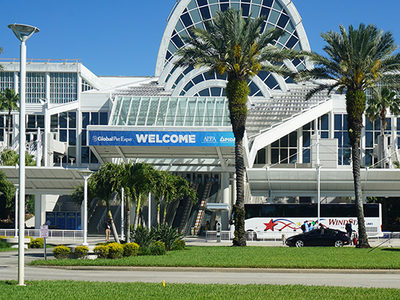This article was published in Pet Food Processing’s October 2022 Buyers Guide. Read it and other articles from this issue in our October 2022 Buyers Guide.
Regulatory hurdles, economic stressors and trade opportunities are all top of mind for the American Feed Industry Association (AFIA) as it helps the industry navigate shifting conditions and unprecedented disruptions across the animal feed and pet food industries. These priorities are emphasized through the association’s continued advocacy for animal health and wellness, trade, industry sustainability, food and employee safety, education, research, and engagement.
AFIA’s membership consists of more than 650 domestic and international companies, including pet food and feed manufacturers, ingredient and equipment suppliers, and industry-adjacent businesses. According to the AFIA, more than 75% of US animal feed and roughly 70% of non-whole grain ingredients in the country are manufactured by its members.
"The past year saw impressive progress on many issues important to the membership and our industry," said Mike Schuster of Laidig Systems, Inc.
The AFIA strives to give a voice to decisionmakers on Capitol Hill or at the regulatory agencies on legislative and regulatory matters and provide key insights on timely topics affecting these industries. The AFIA also offers confidential expertise to its members, as well as opportunities for training and education, professional development, and networking throughout the year.
“A cornerstone of the AFIA is its four promises to membership: Voice, Representation, Expertise and Engagement,” wrote Mike Schuster, immediate past chair at the AFIA and vice president of sales at Laidig Systems, Inc., in AFIA’s 2021-2022 State of the US Animal Food Industry Report, which was published in late August. “In my year as board chair, it was gratifying to watch these promises fulfilled by the outstanding work of the association. The past year saw impressive progress on many issues important to the membership and our industry.”
In its latest State of the US Animal Food Industry Report, the AFIA reiterated its mission, vision and values, and provided updates on the current business climate, feed and food safety, industry competitiveness and trade, sustainability, and educational and networking opportunities past, present and future.
“Disruptions in the supply chain will inevitably stay with us throughout 2022 and unfortunately into 2023, but so too will our commitment to work with industry partners and governments around the world to resolve bottlenecks, identify new opportunities and navigate the global uncertainties posed by pandemics, production shortages and political unrest,” wrote Constance Cullman, president and chief executive officer of the AFIA, in the report.
Over the last year, the AFIA has made headway on several of these issues. Pressure on the Biden administration contributed to the passage of the Ocean Shipping Reform Act in June, which increases the authority of the Federal Maritime Commission (FMC) to investigate unreasonable fees and cargo refusals. The organization also fought for the DRIVE-SAFE Act, a pilot program allowing 18- to 20-year-old drivers to obtain interstate licenses for commercial trucking, which was included in the Infrastructure Investment and Jobs Act signed into law in November 2021.

Additionally, the AFIA joined Pet Food Institute (PFI) and the National Grain and Feed Association (NGFA) in signing a letter urging the White House to suspend, reduce or eliminate Section 232 and Section 301 tariffs, which deal with retaliatory tariffs in Europe, Japan and the United Kingdom, and Chinese goods, respectively.
The AFIA is also heavily involved in a cross-industry push to mitigate challenges surrounding the inclusion of hemp-based ingredients in pet food and animal feed and has pushed for a new amendment to dedicate $8 million in funding to the US Food and Drug Administration’s Center for Veterinary Medicine (FDA CVM) to expedite new feed ingredient reviews.
The organization is also prioritizing contingency plans for African swine fever (ASF), an animal disease posing significant risks to the US pork industry and, subsequently, the animal food industry. To address this risk, the AFIA partnered with the pork industry and the Institute for Feed Education and Research (IFEEDER) to evaluate disinfection methods for feed manufacturing facilities.
Moving forward, the AFIA will continue to support the industry on five key policy issues: access and availability of technology, feed and food safety, ingredient affordability and availability, global competitiveness, and sustainability and workplace safety.
Read more news from associations and agencies in the pet food sector.




